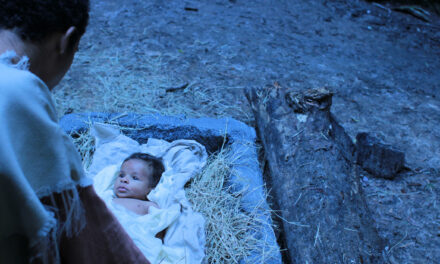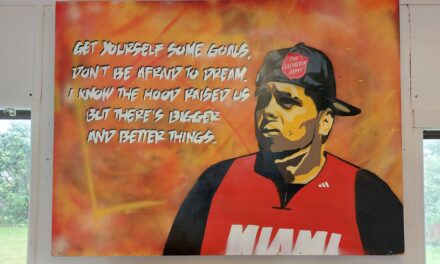
Standing in the Unknown: Deconstruction and Reconstruction

In a time when the access to knowledge is increasingly accessible, and with a bit of research we can find answers to most questions on the internet, it can be unsettling to sit in the unknown. Holly Morton explores how deconstructing faith can lead to reconstruction.
There are so many examples of people in the Bible openly questioning God and his plans for the world: Abraham, Job, Jacob, even Jesus had his doubts as he went to the cross. Being able to approach God around the things we don’t understand is a wonderful part of faith, but sometimes that involves a long journey of praying, discerning and letting go of beliefs that don’t align with our understanding of God: deconstruction.
Some people believe that deconstruction is inevitable, while others are afraid of the process of people questioning their faith and do their best to steer them away from it. There is often a fear that deconstruction will result in people losing their faith and turning away from God. Because of this, the term ‘deconstruction’ has in some denominations been considered a dirty word which could lead to the downfall of the Church.
The ‘why’
There are many reasons why people can move into a space of deconstruction. Sometimes they are only given a very basic understanding of faith from their parents or leaders, and as they get older, they discover that things are more complex than first thought. Sometimes the actions of people they trust in church don’t line up with their understanding of God, and they see people get hurt as a result. Sometimes they have questions about the Bible and don’t know where to find answers, or they feel sad and cynical about the way the world is and wonder how God can be present in it.
Unfortunately, there are times when these questions are met with the unhelpful belief that they point to a lack of faith. However, the ability to look critically at an important aspect of their identity, like faith, and discern what is still good, true and scripturally resonant, adds to their understanding of the nature of God, shows spiritual maturity and strengthens faith.
Making renovations
We need to recognise though, that deconstruction is not the same as destruction. While there are occasions when someone’s faith deconstruction journey leads to them leaving their faith behind, most people want to find a deeper understanding and foundation for what they believe. The deconstruction process is only half of the journey; they need some form of reconstruction too. They need to replace the things removed that are no longer healthy or helpful with things known to be true, good and
of God.
It can be helpful to view the process like renovating an older house. The foundations might be strong, but in order to make sure you can live there for a long time, there needs to be work done, whether that’s having to remove and rebuild a retaining wall or pull away some rotting floorboards. It takes time and can be costly, but being able to have a strong, healthy home for our faith is well worth the work.
Growing pains
It is worth noting that for most people, going through faith deconstruction is not a comfortable or easy journey. It often involves letting go of ideas and beliefs that have kept them company, perhaps for a long time. They might receive judgement and anger or have to sit with the knowledge that they are isolating themselves from those they love because they no longer agree with them.
It is vitally important to have the space for deconstruction in a safe and encouraging environment, where those around are open to questions and difficult discussions. If you have friends who are reconsidering what their faith looks like, be gentle and supportive in your conversations with them. Offer to pray with them, or spend time listening to their experiences.
It is inevitable that people of faith grow and change over the course of their lives; it would be worrying if they didn’t. Faith isn’t a static object to leave safely behind glass. If space is given to do it well, deconstruction and reconstruction should be part of a lifelong faith journey: a slow cycle of reflection and being open to a fuller understanding of who God is and who we are.
For parents and leaders
As scary as it can be to hear about your young people going through the beginnings of a spiritual deconstruction, the best thing you can do is journey alongside them for it.
When people feel safe and empowered to ask questions, they are more likely to feel they have a place in the church, no matter what they are working through. When your young people come to you with questions about God, the Bible and how to live out their faith, it’s alright to not know all the answers. Look into the topics they are unsure of for more context and work out why you believe what you do on these topics. Model a good balance of curiosity and being comfortable in the unknown.









